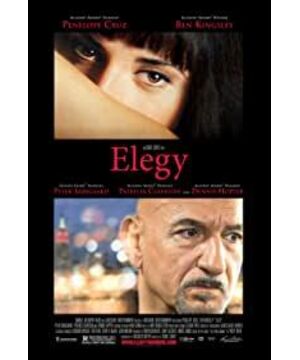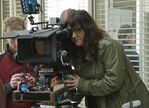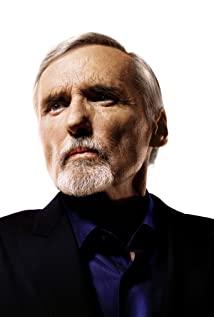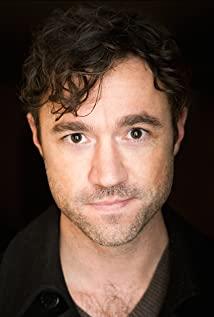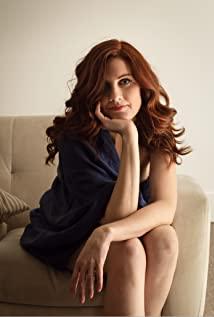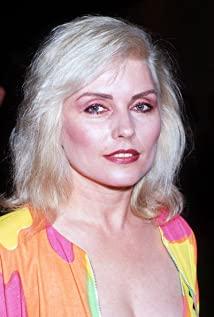These topics that are not closely related to three meals a day are unlikely to attract everyone, but they can always attract a considerable number of followers. Penelope Cruz, a student in David's class, is one of them. The two of them first became the protagonists of the famous American writer Philip Roth's novel "The Dying Animal" (The Dying Animal), and last year female director Isabel Coixet made the novel into the film "Elegy" (Elegy).
Teachers are naturally attractive to students, and it is not difficult at all to have a relationship between teachers and students. Middle school and elementary school are a little more dangerous, and it is best to control each other's emotions, especially the secretion of sex hormones. In contrast, universities are much safer, and the frequency of occurrence is much higher. A reporter friend in China recently proposed the scientific slogan of "Professor of Fire, Anti-theft and Prevention". The United States is no different from China in this regard. The convenience between teachers and students has been extended to teaching assistants and students, and even between older professors and younger professors.
In this case, as a well-known professor, even if his hairstyle has always been imitating Mahatma Gandhi, is David getting Kang Sweena as if he is looking for something? What's more, he is single and the child is an adult? There are actually still challenges, as the two are 30 years apart in age.
From the first class, David couldn't take his eyes off Consweena, but due to the school's restrictions on sexual harassment, he waited until the end of the class before starting. During the show of feathers before the courtship, David played the piano for Consweena, took her to Broadway theaters, and listened to operas at Lincoln Center. He complimented her eyes, or pupils, as people in love like to use, just like the models in Goya's oil paintings. And photography. Just like Penelope Cruz's "Midnight in Barcelona" last year, it's the kind of damp, ambiguous, and dark that can only be found in traditional darkrooms. Photography lovers who pursue romance must reject digital cameras, and David is no exception. . All of these tricks are good, but they don't seem particularly creative at all.
The physical intimacy of the two is also relatively conventional. Taking advantage of the opportunity to read the album, David bumped into Kang Sweena's hand. After feeling no resistance, he continued to face. But the bed scene between the two is really worth looking forward to. I have a basic impression that female directors tend to have more courage than their male colleagues when it comes to sex scenes. American director Kimberly Peirce of "Boys Don't Cry" and New Zealand director Jane Campion of "Piano Lesson", as is the film's director, Spanish-born Isabel Coixet. Male directors who have collaborated with Penelope Cruz, including Almodóvar and Woody Allen, have all shown the Spanish star's feminine beauty in their own way. In the face of the Creator's masterpiece, to pass up this opportunity would mean insanity. Isabel Coixet goes even further, and the parts of Penelope Cruz that should be covered by a bikini are all visible in Elegy.
The bed scene unfolds with the accompaniment of the piano. The 60-somethings definitely can't use hip-hop, the harder rock is too strong, and the soft, soothing piano is just right. Isabel Coixet's design is relatively new, and the groans that are indispensable in other movies did not appear. The teacher and the student were talking on the bed without any breathlessness.
My taste was instantly lifted. David is a regular on TV and radio to discuss literature, including America's dullest late-night talk show, Charlie Rose of PBS. He also wrote a review for The New Yorker magazine that kung fu should be top-notch. I should have written a review of what David said in that moment of passion. Some readers may need to be flexible in real life to improve their ability to praise women in specific situations.
But I am disappointed. No poetic language, it's all vernacular: "This is the most beautiful breast I've ever seen," "Like a work of art," "I adore it," and so on. Facing, touching, kissing "the most beautiful breasts", but can only say "this is the most beautiful breasts I have ever seen"? The art professor's language is so poor that he sounds like a gynecologist. Maybe because the part of the brain responsible for thinking is not functioning at this moment?
The psychological advantage formed by the gap between professors and students still could not help David overcome the psychological obstacles formed by the large age gap, and the two did not go far. On New Year's Eve a few years after the breakup, Consweena took the initiative to call David, and the two met again. I thought the dying flesh was referring to David, but the tragedy happened to Consweena. Actor Ben Kinsley played David very well, the problem was that there was no way I could like the character. A narcissist. The film unfolds entirely from David's point of view, and we know very little about Conswaya. The world is explained by David and has little to do with Consweena. She has cancer, but the movie makes us appreciate how considerate David is. The most beautiful breasts David has ever seen will be removed from Consweena, who asks if the love continues. It doesn't really matter what kind of answer David gives, he will continue the class, and there are still female students in the class.
View more about Elegy reviews


